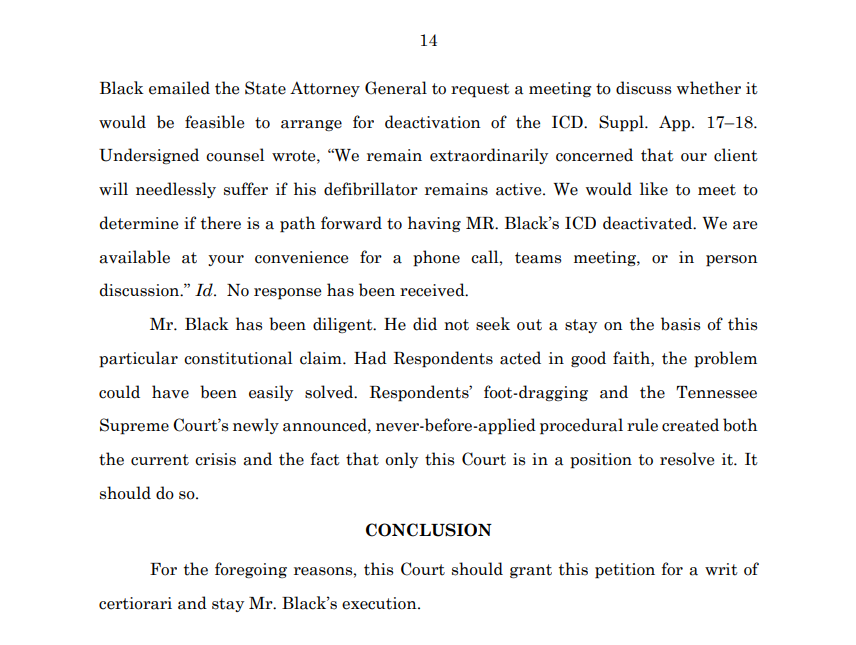Heart Device Complicates Execution: Tennessee Inmate’s Fate Hangs in Legal Limbo
- M.R Mishra

- Aug 4
- 2 min read
A Tennessee prisoner, Byron Black, faces execution next week despite concerns about his intellectual disability and the potential complications posed by his heart defibrillator. Black, who has been on death row since 1989, is at the center of ethical debates that his legal team argues should halt the planned execution.

On Thursday, the Tennessee Supreme Court ruled that the lethal injection of pentobarbital could proceed even with Black’s active heart-regulating device in place. His attorneys have since appealed to the U.S. Supreme Court, which has yet to intervene.
Black’s lawyer, Kelley Henry, has urged Tennessee Governor Bill Lee to grant clemency, calling the execution a "gruesome spectacle." Black was found guilty of murdering his girlfriend, Angela Clay, and her two young daughters in 1988, driven by a jealous rage while on work release for a prior shooting.
Tennessee Attorney General Jonathan Skrmetti insists the execution must proceed, stating his commitment to securing justice for the victims’ family. However, Black’s defibrillator—a device that detects and corrects irregular heartbeats raises concerns.
A lower court had ordered its deactivation to prevent unnecessary suffering, but the state Supreme Court overturned that decision, arguing it effectively delayed the execution.
Medical ethics complicate the situation further, as hospitals have refused to deactivate the device, leaving no clear solution. Black’s legal team continues to push for a stay, citing unresolved constitutional questions about potential suffering.

Additionally, Black has been diagnosed with intellectual disability (with an IQ between 57 and 76), severe dementia, and brain damage. His lawyers argue that under a 2021 law prohibiting executions of intellectually disabled individuals, he should be spared though courts have ruled the law doesn’t apply retroactively in his case.
Tennessee recently resumed executions after a five-year pause, and Black’s has been postponed multiple times due to issues like the pandemic and flawed drug testing protocols. Medical experts, including trauma surgeon Dr. Jonathan Groner, have criticized the planned execution as "bizarre" and unethical, comparing it to repeatedly stopping and restarting the killing process.
Read More:







Comments